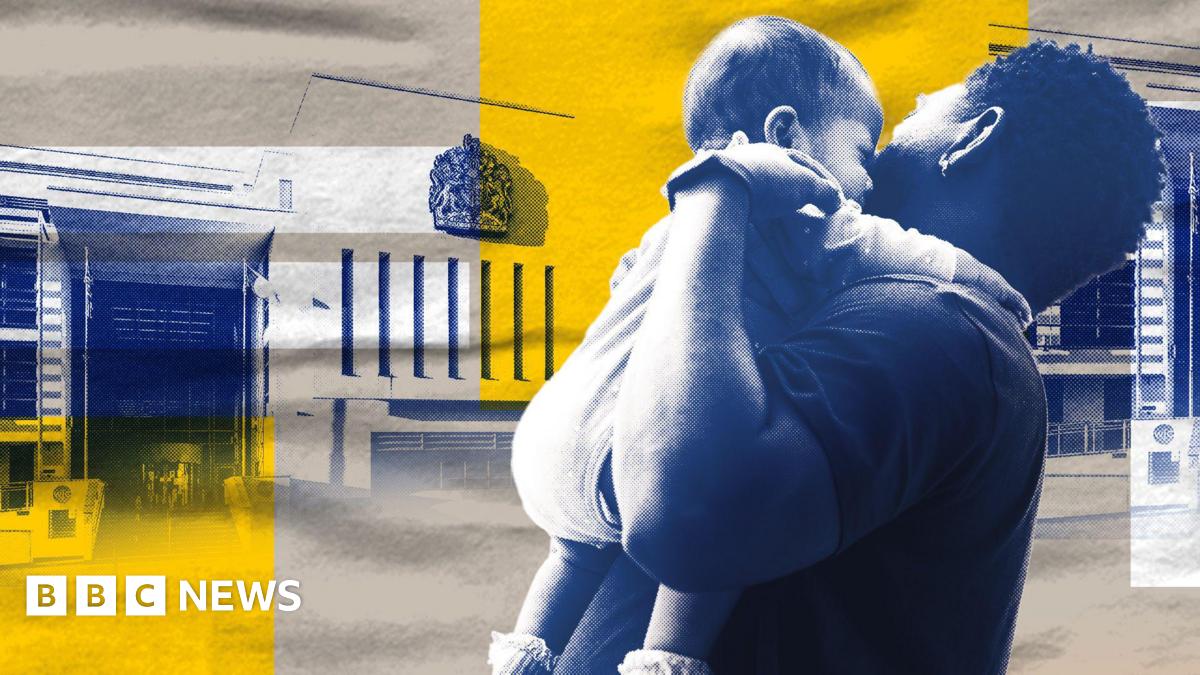Judge Rejects Adoption Application, Citing “emotional Harm” to Child
A British High Court judge has rejected an adoption application, citing emotional harm to a child who was moved from Nigeria, raising complex questions about international adoption and immigration law, with implications for similar cases in the U.S.
Adoption Application Denied, Child Placed in Foster Care
A high Court judge in the United Kingdom, Sir Jonathan Cohen, has denied the application of a Nigerian man, identified as Ossai, and his British wife to be assessed as suitable caregivers for a child named lucy. The decision hinged on concerns about the emotional well-being of the child, who has been placed in foster care.
Sir Jonathan stated that the “lies they had told and the actions they had taken, especially moving Lucy from Nigeria, had ‘inevitably caused her very significant emotional harm.'” The judge’s ruling underscores the stringent scrutiny applied to international adoption cases, particularly when questions of deception or potential harm to the child arise.
Child’s Welfare Paramount in Court decision
Lucy has been placed with multiple foster families since arriving in the UK, currently residing in at least her third new home. in April, the judge directed that she be placed for adoption within the UK and that her name be changed to provide her with a fresh start.The judge emphasized that Lucy “needs to have the best opportunities going forward in the world” and that this “can only be done in a placement in an alternative family.”
The court has stipulated that Lucy will be given “background” information regarding her heritage and the circumstances surrounding her past. This approach aims to balance the child’s need for a stable future with the importance of understanding her origins.
Genuine Desire vs. Child’s Best Interests
Despite acknowledging that Ossai and his wife had a “genuine desire to adopt Lucy,” the judge determined that their actions had ultimately been detrimental to the child’s emotional health.This highlights a critical tension in adoption cases: the well-intentioned desires of potential parents versus the objective best interests of the child.
Immigration Implications and Legal Perspectives
Julian Bild, an immigration lawyer for the anti-trafficking charity Atleu, offered insight into the potential immigration ramifications of the case. He noted that when a woman is a UK national and a child gains UK nationality through adoption or other means,“it is likely the family would be allowed to stay here.” Bild also clarified that a child can obtain British citizenship if they are brought to the UK and legally adopted there.
Though, Bild cautioned against the notion that adoption can be easily exploited for immigration purposes. He stated that it is “very, very unlikely that a Nigerian could simply adopt a child to improve their immigration situation and get away with it because that would be pretty transparent.” According to Bild, “A person seeking to bring a child to the UK for the purpose of adoption would first need to get a Certificate of Eligibility from the UK government before being able to do so.” He added that “the genuineness for all of this to happen is obviously looked at very closely by the family courts, social workers and experts to ensure the arrangement is in the best interests of the child.”
U.S. Adoption Statistics & Scrutiny
While this case occurred in the UK, it mirrors concerns and regulations present in the U.S. regarding international adoptions. According to the U.S. Department of State, intercountry adoptions to the U.S. have declined over the years. In 2004, there were 22,991 adoptions; in 2023, that number dropped to 1,538. This is due to increased domestic adoptions in other countries, stricter international regulations, and heightened caution around potential child trafficking.
| Year | Number of Intercountry Adoptions to the U.S. |
|---|---|
| 2004 | 22,991 |
| 2010 | 11,681 |
| 2015 | 5,647 |
| 2020 | 1,624 |
| 2023 | 1,538 |
U.S. courts, similar to those in the UK, prioritize the child’s welfare above all else. This is reflected in the rigorous screening processes for prospective adoptive parents, including background checks, home studies, and interviews. Any inconsistencies, misrepresentations, or concerns about the potential for emotional or physical harm can lead to the denial of an adoption petition.
Immigration and Customs Enforcement Stance
When asked for clarification on the Ossai and Olasanoye case, the Home Office declined to comment on the specifics, citing policy against discussing individual cases. Though, a Home Office spokesperson stated: “Foreign nationals who commit crime should be in there’s no doubt whatsoever that we will do everything to make sure they are not free to roam Britain’s streets, including removing them from the UK at the earliest possible opportunity.” The spokesperson further added,”As the election we’ve removed 3,594 foreign criminals,a 16% increase on the same period 12 months prior.”
This statement reflects a broader trend in both the UK and the U.S. of increased scrutiny of foreign nationals who commit crimes, including those related to immigration and child welfare.
Addressing Counterarguments
Some might argue that denying Ossai and his wife the opportunity to adopt Lucy, despite their stated desire, is unfair. They might contend that a stable home with parents who genuinely want a child is better than foster care. However, the court’s decision emphasizes the critical importance of prioritizing a child’s emotional well-being and safety above all else.the judge determined that the couple’s actions had already caused “very significant emotional harm” to lucy, making them unsuitable adoptive parents, regardless of their intentions. The long-term impact of emotional trauma on a child can be devastating, outweighing the potential benefits of a seemingly stable home environment.
FAQ: International Adoption and Child Welfare
- What factors do courts consider when assessing international adoption cases?
- Courts prioritize the child’s best interests, considering the prospective parents’ background, financial stability, emotional maturity, and any potential risks to the child’s safety and well-being. They also examine the legality of the adoption process in both countries.
- How does the Hague Adoption Convention protect children in international adoptions?
- The Hague Adoption Convention establishes safeguards to prevent child abduction, trafficking, and unethical adoption practices. It requires participating countries to have central authorities that oversee and approve adoptions, ensuring compliance with international standards.
- What are the potential immigration consequences of adoption fraud?
- Adoption fraud can lead to severe immigration consequences, including deportation for the adoptive parents and potential legal issues for the child. It can also jeopardize future immigration applications.
- Where can U.S.citizens find resources and support for international adoption?
- U.S. citizens can find resources and support from the U.S. Department of State,accredited adoption agencies,and organizations specializing in international adoption. These resources offer guidance on legal requirements, cultural considerations, and post-adoption support.
- why have intercountry adoptions to the U.S.declined in recent years?
- The decline is attributed to stricter international regulations, increased domestic adoptions in other countries, heightened caution around potential child trafficking, and diplomatic challenges. These factors have made international adoption more complex and less common.






